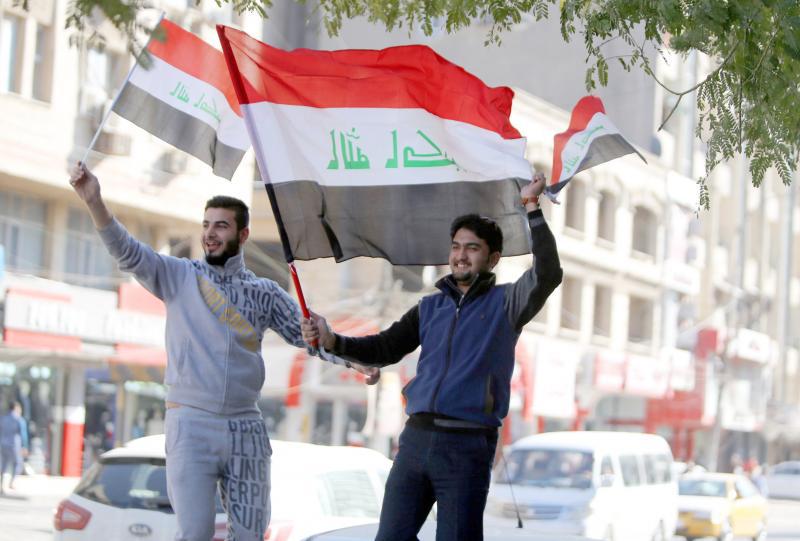Iran had no future in Iraq and it cannot change that
Iran is not happy with the results of the May 12 elections in Iraq. It insists that Iraq be an Iranian colony ruled by Tehran even though that is totally opposite to the nature of things. So, Iran simply carried out a coup over election results.
The chaos in Iraq is but the result of that coup. Things can’t get any lower than when the old guard is seeking to extend the term of the current parliament. Frankly, the political system put in place following the 2003 US-led invasion of Iraq is the worst there is. It’s been 15 years and nothing has improved in Iraq.
What we’re seeing, especially since election results were challenged and the rumour spread that some ballot boxes had been burned, are signs of a boding civil war rather than the reassuring foundations of a democratic state promised by the Americans.
Iran is in denial of the reality that Iraq cannot and must not be controlled by Tehran. Iran is behaving like a child whose toy has been taken away. That goes a long way in explaining Tehran’s reaction to the Iraqi elections. When US President George W. Bush waged war on Iraq using fictitious reasons, Iran was the sole winner. The results of the May 12 elections risk to yank away that war booty from Tehran.
Granted, Saddam Hussein was no saint. He was a full-fledged brutal dictator. He lacked political common sense and was totally ignorant of the balances of power regionally and internationally. A savvy politician would not invade Kuwait and then prepare to negotiate with the United States as if he were holding all the winning cards.
Most of Saddam’s political mistakes were catastrophic for Iraq. In 1980, for example, instead of looking for other ways of responding to Iran’s provocations, he chose to plunge Iraq into a senseless war with a retrograde regime that belittled its Arab neighbours on sectarian grounds. For the mullahs’ regime, the war with Iraq served quite well its purpose of keeping the Iranian army busy and away from politics.
At any rate, Iran is reaping its rewards today. It is true that Iraq was gifted to Iran by the Americans but it seems that Iran did not know what to do with its easy victory. Iraq turned out to be not an easy bite to swallow after all, even with America’s help.
Yes, the United States has helped Iran in Iraq. During the Bush administration, Paul Bremer dissolved the Iraqi Army and established a governing council on sectarian and ethnic bases. Barack Obama carried on with the task of offering Iraq to Iran by withdrawing US troops from Iraq and blessing Nuri al-Maliki, Iran’s man, for a second term as prime minister after the 2010 elections in which Ayad Allawi’s list finished first.
Iraq can no longer fulfil its function as a war chest for Iran. The recent elections not only revealed that the country is broke but also that its political parties are not capable of rising to the challenge posed by its internal crisis.
It is futile to try to solve Iran’s crisis in Iraq by concocting an incongruous alliance between Muqtada al-Sadr and Hadi al-Amiri. Such an alliance seems to have taken place so Iran can boast about being able to absorb the elections’ negative effects and remain in control of things in Iraq.
But surely Iran is not going to find a survival niche in Iraq by just undermining the election results. If any sense can be made of the victory of al-Sadr’s Saairun list, it must be that there is a strong desire among Iraqis to escape Iran’s dominance, even at the cost of backing someone such as al-Sadr, who is well-known for his past of very close ties with Iran.
Above all of this, we must not lose sight that this time there is no US administration ready to back Iran in Iraq, especially after US President Donald Trump’s pulling out of the nuclear deal with Tehran.
With this background, Iran is out of cover in Iraq. If it wants to, Tehran can still enjoy destroying a few more places or perhaps ethnically and religiously “cleanse” more cities and regions in Iraq or even subcontract the Islamic State to raze a historical city such as Mosul but it won’t change the fact that Tehran has no future in Iraq, assuming that Iraq has a future other than a civil war.
It is a great pity that a country with a unique history of cultural diversity and wealth in the Middle East before the coming of military then Ba’ath Party rule in 1958 should end this way.
Khairallah Khairallah is a Lebanese writer.
This article was originally published in The Arab Weekly.







